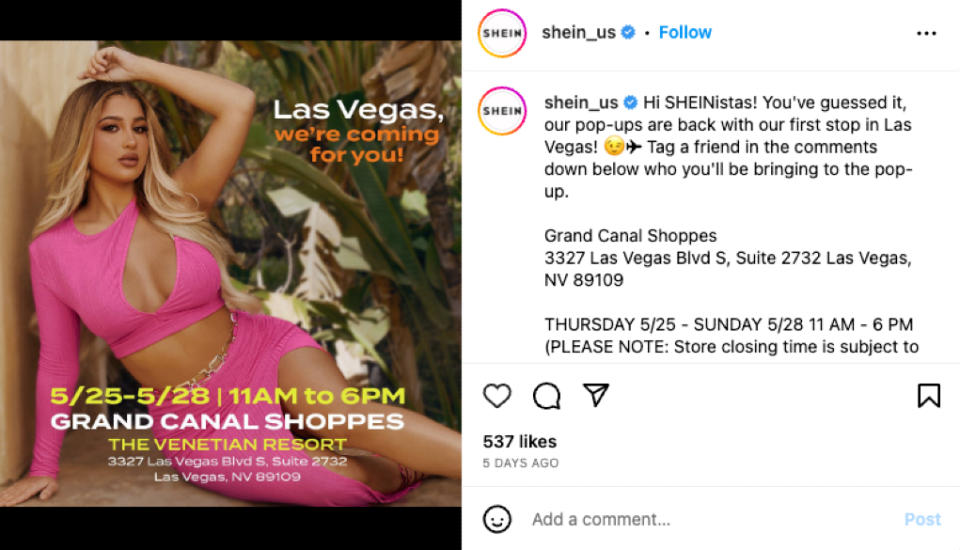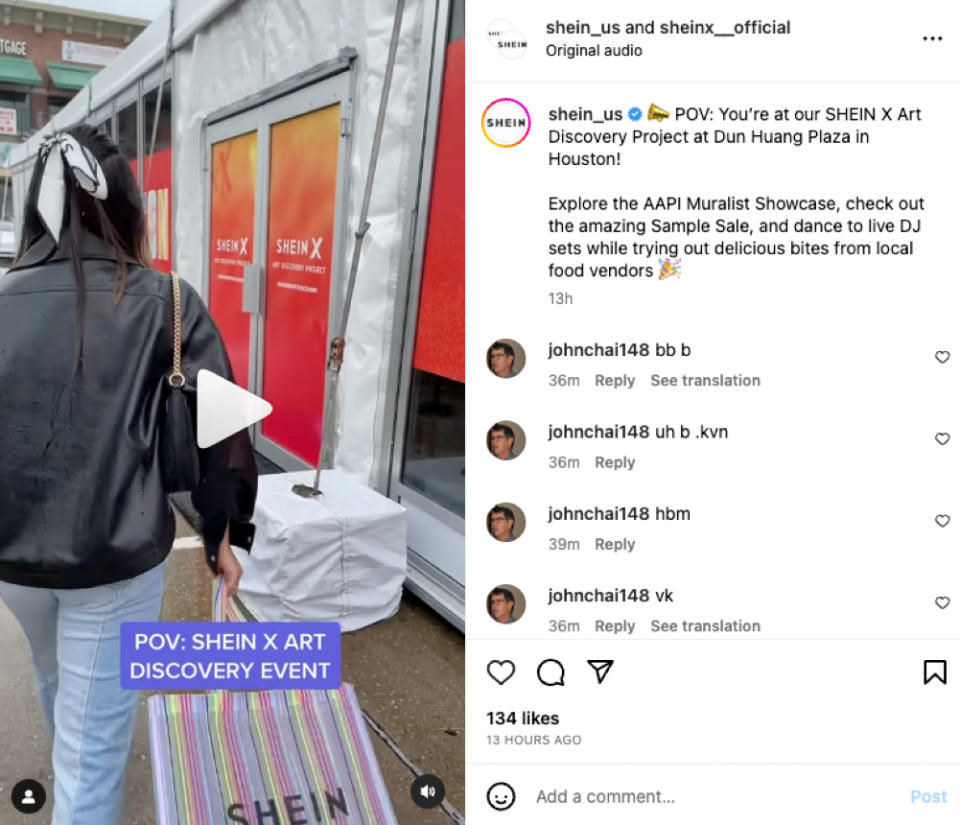Shein Raises $2B, Plans Massive India Reboot

Shein will soon be back in business in the world’s most populous country.
A new deal with Indian retail giant Reliance Retail will bring the Chinese fast-fashion e-tailer back into the south Asian nation, whose 1.4-billion-strong consumer population eclipsed China earlier this year. A Shein spokesperson confirmed the deal, first reported by the Wall Street Journal, which recently cleared regulatory hurdles with the Indian government. The Indian government had blocked Shein’s popular app in 2020, citing threats to national security. Shein could begin operating in India as soon as this month.
More from Sourcing Journal
The tie-up with the 15,000-store operator selling groceries, clothing, footwear, electronics and more will give Shein massive reach with India’s attractive consumer market. It will also help Shein tap into supplier relationships diversifying a supply chain that currently relies on Chinese vendors and cotton, whose usage has created a bipartisan backlash questioning potential links to forced labor as the e-tailer lays the ground work to go public in the U.S.
Of note, Reliance recently helped Gap establish a franchise presence in the Indian market.
The developments in India comes as Shein is planning to stage nearly three dozen popup experiences this year.
This week, it will host a popup in Las Vegas after it recently celebrated Asian American and Pacific Island Heritage Month by hosting “Sheinistas” at Houston’s Dun Huang Plaza for a sample sale and block party showcasing exclusive murals painted by AAPI artists.
Shein this year has already hosted popups across the U.K. and Ireland in in Birmingham, Cardiff, Bristol and Cork. Last year’s Dublin popup attracted over 4,000 visitors daily, according to the e-tailer.
“These pop-ups form an integral part of the Shein business model, allowing consumers to experience product first-hand as well as allowing the brand to engage with consumers,” the company said of plans to host 30 popups around the EMEA (Europe, Middle East and Africa) region this year.

Michael Appel, former CEO and chairman of Rue21 who is now managing director at Getzler Henrich & Assocs., said, popups helps retailers, especially online operators, try out new locations and figure out their demographics. “Because the popups are short-term, there’s no long-term commitment and no risk for the retailer,” he said, noting that mega-popular Shein is “very desirable” for landlords.
Brands like Hollister’s tween intimates line Gilly Hicks felt out the market with in-store shops before graduating to popups and eventually launching freestanding stores.
Shein earlier this month established EMEA headquarters in Dublin. The new office hosts Shein’s strategic IT hub for the region, and will add 30 key jobs by the end of the year. It also hosts Shein’s in-house fashion incubator program, Shein X, which is described as empowering local entrepreneurs.
Shein also opened three new distribution centers across EMEA last year, including a new 430,556-square-foot distribution hub in, Poland, as well as centers in Italy and the United Arab Emirates (UAE). It now has eight centers in EMEA.
Shein recently raised $2 billion in a fundraising round led by current investors Sequoia Capital and General Atlantic and including new participant Mubadala, the UAE sovereign-wealth fund, according to the Wall Street Journal. A spokesperson for the fashion e-tailer said the private company “does not disclose financial figures.”
The talks have been going on for about a year. In January, investors suggested that Shein could be worth $64 billion, instead of the headier $70 billion to $80 billion valuations from months earlier. Even those numbers were a notable drop from when a $1 billion April raise valued the company at $100 billion.
Shein shelved plans to go public after Russia’s Ukraine invasion unleashed chaos in the financial markets. TikTok’s most-buzzed-about brand also has been dogged by reports that its products contain toxic chemicals and some supply chain workers are reportedly subjected to sweatshop-like conditions.
In the halls of congress, nearly two dozen members of the House of Representatives recently urged the U.S. Securities and Exchange Commission to hold off on registering Shein until it can prove that its business isn’t tainted by the forced labor of China’s persecuted minorities from the Xinjiang Uyghur Autonomous Region. Shein, which insists that it doesn’t have any suppliers this region, has repeatedly said it has “zero tolerance” for forced labor. A new coalition is also urging lawmakers to “shut down Shein.”
Shein has taken pains to burnish its image. It donated money and goods such as as apparel, to various women’s and children’s charities across EMEA. The company is also investing $150 million to localize apparel production in Brazil, and inked a circular partnership with online deadstock fabric and materials marketplace Queen of Raw to source existing inputs to reduce its reliance on virgin goods.


